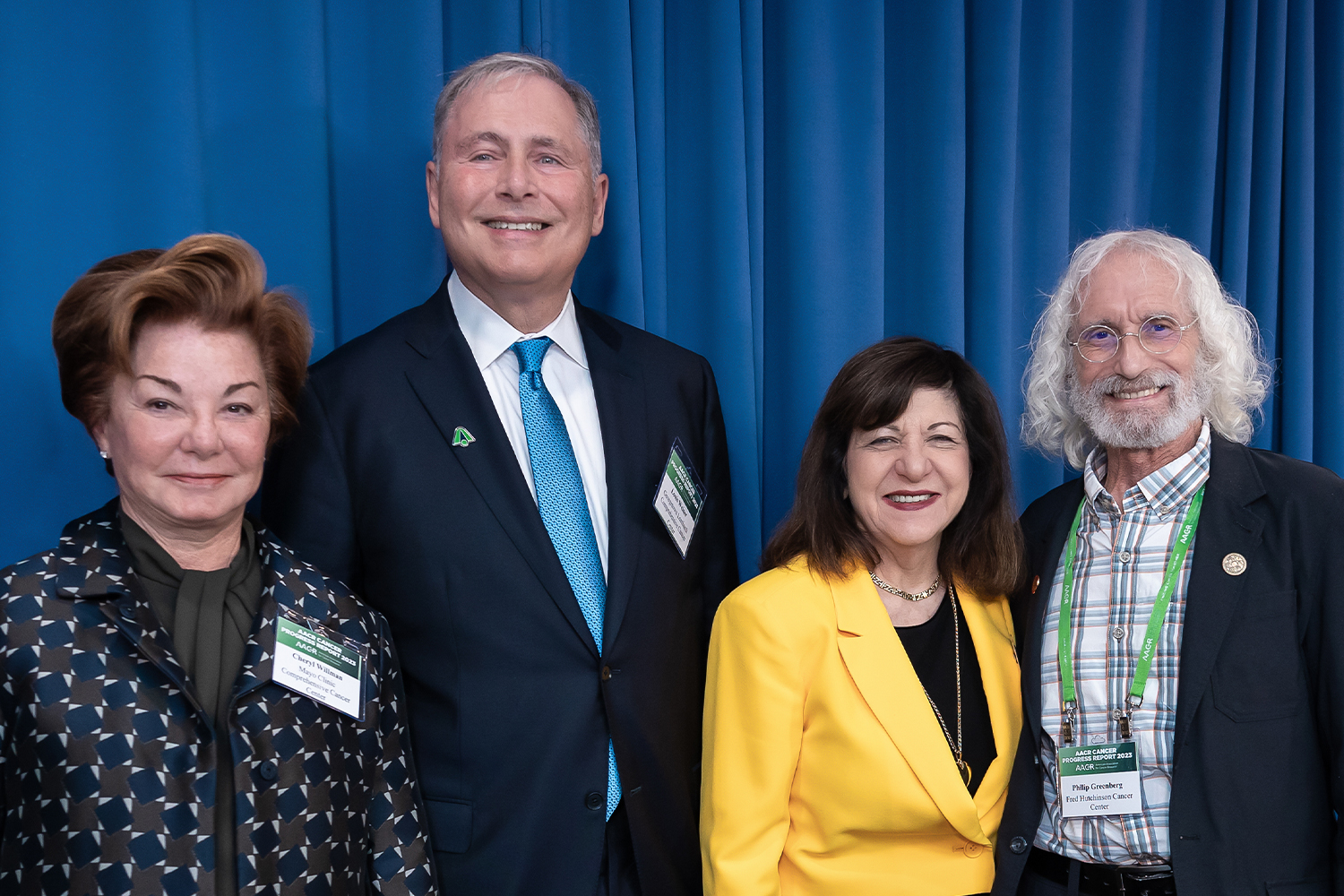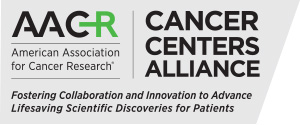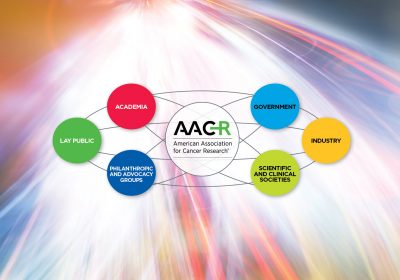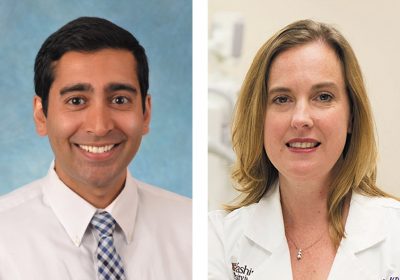
An Alliance to Foster Collaboration and Innovation
AACR announces an alliance that brings together U.S. cancer centers to maximize progress against cancer.
The American Association for Cancer Research® (AACR), working with leaders from the nation’s cancer centers, has announced the formation of the AACR Cancer Centers Alliance, an unprecedented collaboration among the nation’s cancer centers that has as one of its major goals the acceleration of discovery for the benefit of patients.
 “This partnership will bring together cancer centers across the country to facilitate collaboration and expand the scope and impact of these world-class institutions for the benefit of all patients,” AACR CEO Margaret Foti, PhD, MD (hc), said during a briefing introducing the Alliance held September 13, 2023, in Washington, D.C.
“This partnership will bring together cancer centers across the country to facilitate collaboration and expand the scope and impact of these world-class institutions for the benefit of all patients,” AACR CEO Margaret Foti, PhD, MD (hc), said during a briefing introducing the Alliance held September 13, 2023, in Washington, D.C.
David A. Tuveson, MD, PhD, director of the Cold Spring Harbor Laboratory Cancer Center in New York, is serving as chair of the Alliance steering committee.
“I am inspired by the collaborative mindset of my fellow cancer center directors and their collective enthusiasm for this exciting new strategic approach to tackling cancer and am thrilled to join my esteemed colleagues in announcing the AACR Cancer Centers Alliance,” Dr. Tuveson said in recorded remarks played during the event in Washington.
The National Cancer Act of 1971 directed the National Cancer Institute (NCI) to develop 15 cancer research facilities. Today, NCI-designated cancer centers conduct research on all aspects of cancer, from basic science to assessing emerging therapies. “The discoveries in our cancer centers become the new medical approaches for patient care and cancer prevention,” Dr. Tuveson said. All cancer centers have been invited to join the Alliance. Thus far, more than 90 cancer centers have signed on to be part of the Alliance.
For more than a decade, cancer center directors have been asking the AACR to interact with them more closely and play a supporting role in advancing research progress and educating and training at their cancer centers. During the press briefing, Dr. Tuveson relayed how, during his tenure as AACR president in 2021-2022, he met informally with other cancer center directors to discuss the challenges that their institutions faced. These one-on-one conversations led to larger discussions among the directors. The AACR hosted more than 60 directors at a July 2022 meeting in Philadelphia, followed by a virtual session of more than 30 cancer center directors that October and another in-person gathering at the AACR Annual Meeting 2023 held in April in Orlando, Florida.
Through these conversations, cancer center directors agreed that they could have a greater impact by working together. They decided to collaborate and leverage their collective wealth of expertise, state-of-the-art technology, translational and clinical expertise, and access to diverse patient populations.
“As cancer center directors, we see ways where our centers—not just our investigators—can work together for the common good,” said Louis M. Weiner, MD, director of the Georgetown Lombardi Comprehensive Cancer Center in Washington, D.C. “The AACR provides us with a convening focus and a support structure to help us achieve our goals.”
The Alliance has established four initial areas of focus: basic and translational research; clinical research and clinical trials; education, training, and DEI (diversity, equity, and inclusion); and speaking with a unified voice. Four subcommittees with 52 members will address these areas.
To advance basic and translational research, the collaborative will devise novel ways to fund research, while also encouraging centers to discuss best practices. “The AACR Cancer Centers Alliance plans to develop innovative fundraising models and to facilitate the sharing of best practices, specialized skills, and sophisticated core facilities among cancer centers so we can share our collective attributes together,” Dr. Weiner said.
Cancer centers also will share knowledge and resources to maximize the impact of clinical research and clinical trials. Through the Alliance, institutions will collaboratively explore state-of-the-art approaches to develop decentralized and pragmatic trials. The partnership also will present centers with data-sharing opportunities.
Since most cancer researchers receive their training at cancer centers, education is a top priority. The Alliance plans to improve training for the next generation of cancer researchers, along with diversifying the cancer workforce through a myriad of DEI initiatives.
Finally, directors plan to share a common message when educating the public and policymakers about the importance of cancer research. “Through the AACR network, we will speak with that unified voice to address the most important questions in cancer, drive innovation, assure that all Americans have access to clinical trials and state-of-the-art cancer care, and overcome health disparities,” said Cheryl L. Willman, MD, executive director of the Mayo Clinic Comprehensive Cancer Center in Rochester, Minnesota.
Leaders of the initiative expressed optimism about the impact that this collaborative will have on cancer research, patient care, and the national Cancer Moonshot effort to reduce cancer mortality.
“We are of the opinion that this new project is probably one of the most important initiatives we have ever launched in the history of our 116-year-old organization,” Dr. Foti said.
“We’re at a point in time where we can make a big difference by working together, and we’re deeply, deeply excited about the opportunity to make this happen,” Dr. Weiner said.
A report outlining the AACR Cancer Centers Alliance’s mission was published online September 13, 2023, in the AACR journal Cancer Discovery. The full membership of the Alliance is scheduled to meet during the AACR Annual Meeting 2024 held April 5-10 in San Diego.





